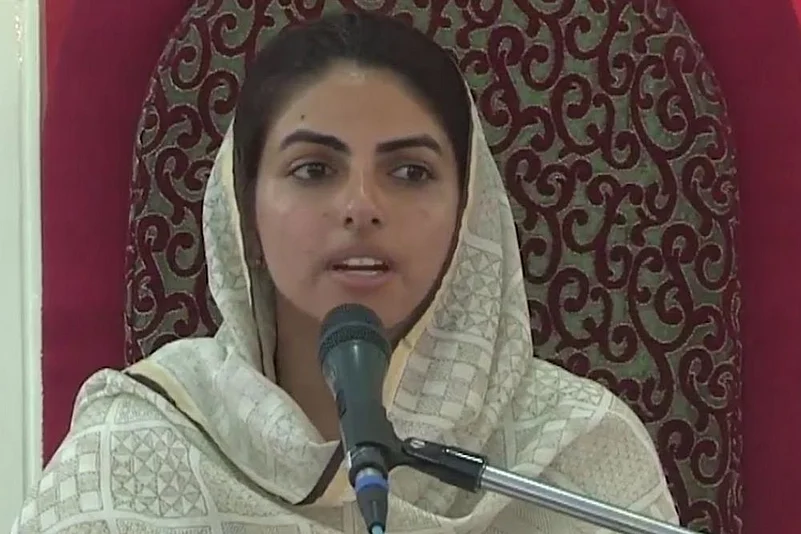A year ago, when she addressed a congregation in the foothills of the Himalayas, Sister Sudiksha had highlighted the need for happy family atmosphere for children to become exemplary characters as they grow up. To follow the teachings of a true master can help kids focus better on their academic studies as well, the young spiritualist had told the July gathering at Dehradun that was experiencing the first signs of monsoons.
Today, Sudiksha was anointed as the head of the Sant Nirankari Mission—a nine-decade-old Sikh reformist organisation that propounds the essentiality of a guru for realisation of God as a formless existence that never changes in an ever-altering world. A ground in Burari of north Delhi, the city where the Mission is headquartered, saw her formally taking over as the spiritual head of the organisation, replacing her mother Mata Satvinder who was present at the function.
If Sudiksha’s speeches often do give emphasis to children and the guru, it isn’t another matter that she is herself born to parents who headed the 1929-founded sect—in succession. Mata Satvinder had been at the helms of the Nirankari Mission for two years from May 17, 2016, four days after the death of her husband, Hardev Singh, following a road accident in Canada. The Baba, who was 62, had remained the sect’s head for 36 years—till he met with his end in a mishap near Montreal. It happened weeks ahead of the Mission’s second Nirankari International Sangam in Toronto, another Canadian city.
That tragedy also meant Sudiksha became a widow. For, she lost her husband Avneet Setya, too. The 29-year-old and his father-in-law were in the back seat of their car when a tyre-burst killed them. That time, Sudiksha was in New York, and the couple had been married for barely a year. Setya, who was 29 then and had been raised in Chandigarh, was an actor by profession.
The Mission, which has more than 2,000 sectors across the world, enjoys the confidence of lakhs of followers even as the movement has its share of critics who find Nirankari a heretic version of the core principles of Sikhism. Anand Tyagi, a supporter, for instance, says the Mission an all-embracing spiritual movement (neither a new religion nor a sect of an existing religion) that cutsacross all divisions of caste, colour and creed. There are detractors who see the Mission ridiculing, tongue-in-cheek, other religions, including Hinduism. To virtually see the Baba as God while simultaneously proclaiming that the Almighty has no form is hypocritical, says a certain Gautam Pandit in an online discussion.
That apart, the Nirankari Mission, which has had its beginnings from spiritual guru Baba Buta Singh has been expanding base over the years—more so in recent times. If its first international meet was held in 2012 at Birmingham in the UK, Hardev Singh had seven years before that inaugurated a Nirankari Museum in Delhi. The organisation has also been into activities such as blood donation and charity. Last year, the Mission had brought out a 301-verse book Hardev Banifeaturing the thoughts of Sister Sudiksha’s father.
Nirankari followers strongly believe that their new spiritual head can further go ahead with the movement.
















